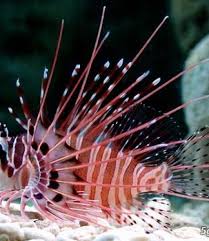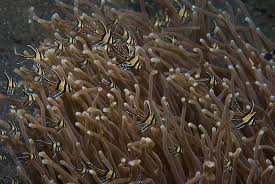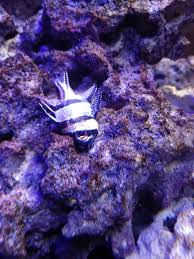
In the rich and complex tapestry of Chinese culture, dragons are not just mythical creatures, but powerful symbols deeply entwined with spirituality, divinity, and the cosmic forces that govern the universe. They hold a significant role in various religious and spiritual rituals, especially those dedicated to the worship of deities. From Taoist temples to imperial courts, dragons have been revered as guardians, symbols of auspiciousness, and intermediaries between the human and divine realms. This article explores the multifaceted role of dragons in the worship of deities in China, shedding light on their symbolism, cultural impact, and enduring significance.
1. Introduction to Dragon Worship in China
The dragon is an emblematic creature in Chinese mythology and a recurring motif in Chinese religious practices. In the context of deity worship, dragons are not merely viewed as beings of myth or folklore; they are seen as divine manifestations or representations of supreme forces. Chinese culture has long been influenced by the interplay between the human world and the divine, and the dragon serves as a bridge between these realms, symbolizing a connection to the celestial world and the spirit of the natural environment.
In both Taoism and folk religious practices, dragons are considered powerful symbols of protection, strength, and cosmic order. They are often invoked during religious ceremonies, rites, and festivals aimed at invoking divine blessings, safeguarding the community, and ensuring prosperity. Whether as representations of deities or as active participants in rituals, dragons play a central role in the spiritual and religious life of the Chinese people.
2. Dragons as Emissaries of the Divine
In Chinese mythology, dragons are often depicted as emissaries or servants of the gods, tasked with carrying out divine will or maintaining harmony in the world. This divine role is often reflected in various religious rituals, where dragons are invoked to bring blessings or protect against evil spirits.
2.1. The Dragon and the Jade Emperor
The Jade Emperor, considered the supreme deity in Taoist beliefs, is often depicted with dragons as his celestial guardians. The Jade Emperor governs the heavens, and dragons, as his loyal servants, help maintain cosmic order and protect the heavens from chaos. During Taoist ceremonies and prayers, dragons are symbolically called upon to act as agents of the Jade Emperor, carrying messages between the divine and human realms.
In certain Taoist rituals, dragon imagery is used to invoke the Jade Emperor’s favor. The presence of dragons in these ceremonies symbolizes a direct connection to the divine and the heavenly order. The belief that the Jade Emperor’s power can be channeled through dragons imbues these creatures with even greater spiritual significance.
2.2. Dragons in Folk Deity Worship
Beyond the Jade Emperor, dragons are also featured prominently in the worship of local deities and guardian spirits in Chinese folk religion. Many Chinese towns and villages have local temples dedicated to deities believed to protect the community, ensure good harvests, and ward off evil spirits. In these settings, dragons are often seen as protectors of the village, sometimes guarding the temple itself or serving as intermediaries between the human world and the deity.
For example, in the worship of Longmu, the Dragon Mother, who is revered in various parts of China, dragons are believed to provide divine protection to families and homes. Longmu, a goddess who raised five dragon sons, is associated with maternal love, protection, and fertility. Temples dedicated to Longmu often feature dragon imagery, and rituals to honor her involve offerings of food, incense, and prayers for health, safety, and prosperity.
In such folk rituals, dragons are not only revered as symbols of celestial power, but also as divine agents who serve the local deities. Their role as protectors underscores their importance in safeguarding the community and ensuring divine favor.
3. Dragons in Taoist Rituals
Taoism, as one of the most influential religious and philosophical traditions in China, has a profound connection with dragons. Taoist teachings emphasize harmony with nature, balance of the forces of the universe, and the cultivation of spiritual energy (Qi). In this context, the dragon is seen as a powerful symbol of cosmic energy and the dynamic forces that govern the natural world.
3.1. The Dragon and the Taoist Immortals
In Taoist mythology, dragons are often associated with the Eight Immortals, a group of legendary figures who are believed to have achieved immortality through the practice of Taoist alchemy and spiritual cultivation. Dragons are considered essential companions or aides to these immortals, guiding them on their spiritual journeys and helping them navigate the realms of heaven and earth.
During Taoist rituals aimed at invoking the favor of the immortals, dragon symbolism is used to channel divine energy and to harmonize the practitioner with the cosmic forces. Taoist temples and altars often feature dragon motifs, as they are thought to facilitate the flow of Qi, the life force that sustains all living beings.
Dragons in Taoism are also linked to the concept of spiritual transformation. Just as a dragon transforms from a humble creature into a powerful being in Chinese mythology, Taoist practitioners believe that through spiritual cultivation, one can transcend the mundane world and achieve immortality. The dragon, as a symbol of this transformation, represents the aspirational journey of the Taoist practitioner seeking to unite with the divine and achieve eternal life.
3.2. Dragon and the Five Elements
The concept of the Five Elements (Wood, Fire, Earth, Metal, and Water) is central to Taoist philosophy, and the dragon plays a key role in balancing these elements. In Taoist rituals, dragons are often invoked to align the energies of the elements, particularly during ceremonies aimed at achieving harmony and balance in nature and in the human body. As a creature that controls the forces of nature, the dragon is believed to be able to influence the flow of Qi within the body, helping to restore health and promote longevity.
During Taoist offerings and rituals for prosperity, dragons are seen as vital agents who can help regulate the cosmic forces, ensuring that the Five Elements are in balance and that the community is in harmony with nature. By honoring the dragon, practitioners seek to bring about favorable conditions for growth, health, and well-being.
4. Dragons in Imperial Rituals and Ceremonies
Dragons have always been closely linked with the imperial court and the divine right of the emperor. In ancient China, the emperor was often regarded as the “Son of Heaven,” and it was believed that his authority was divinely ordained. The dragon, as a symbol of cosmic power and vitality, was adopted as the emblem of the emperor, and dragon motifs appeared prominently in royal ceremonies and rituals.
4.1. The Imperial Dragon and the Worship of Heaven
The worship of Heaven, known as the Heavenly Mandate (Tian Ming), was central to imperial rituals, and the emperor’s role as the intermediary between Heaven and Earth was a sacred duty. The dragon, as a creature associated with divine power and cosmic order, was believed to represent the emperor’s connection to Heaven. Imperial rituals often involved dragon dances, sacrifices, and prayers to Heaven to ensure the emperor’s favor and the stability of the empire.
The Temple of Heaven in Beijing, a major site for imperial sacrifices, features many dragon motifs. The emperor would perform rituals here, asking for good harvests, prosperity, and protection for the empire. Dragons, symbolizing the power of the emperor and his divine right to rule, were believed to help channel celestial energy during these ceremonies, ensuring that the empire remained prosperous and secure.
4.2. The Dragon and the Emperor’s Authority
In addition to its role in ceremonies dedicated to Heaven, the dragon was also used to reinforce the emperor’s power and authority. The emperor’s throne, robes, and palace decorations often featured dragon imagery, symbolizing the emperor’s direct connection to the divine and the strength of his reign. The emperor was viewed as the earthly incarnation of the dragon, and the dragon, in turn, was seen as an embodiment of the emperor’s divine power.
During major state ceremonies, such as the New Year’s Ceremony, the emperor would make offerings to the gods and perform rituals accompanied by dragon imagery. These rituals were meant to ensure the emperor’s longevity, divine protection, and continued prosperity for the nation.
5. Dragons in Rituals for Rain and Harvest
In traditional Chinese agrarian society, the worship of deities associated with rain and harvest was a key component of ensuring a successful agricultural year. Dragons, as controllers of water and weather, were often invoked in these rituals to bring rain, ensure fertile soil, and guarantee a bountiful harvest.
5.1. The Rain Dragon and Agricultural Rites
The Rain Dragon, also known as Long in Chinese mythology, was believed to have control over rain, an essential element for successful farming. In many rural communities, the dragon was worshipped during ceremonies held to request rainfall during periods of drought. Dragon dances, dragon boat races, and rituals featuring dragon imagery were used to invoke the dragon’s favor and bring rain to the fields.
These rituals were deeply connected to agricultural cycles and were viewed as an essential part of maintaining harmony with nature. The belief in the dragon’s power to control the weather and bring rain underscores the deep reverence for the natural world and the importance of balance in Chinese religious practices.
6. Conclusion
Dragons have long held an important place in Chinese religious and spiritual practices, especially in the worship of deities. Whether serving as emissaries of the divine, intermediaries between the human and celestial realms, or symbols of power and prosperity, dragons play a key role in the rituals and ceremonies dedicated to invoking divine favor, protection, and blessings.
From Taoist temples to imperial courts, the dragon’s association with deities highlights its central role in Chinese culture as a bridge between the earthly and divine. As symbols of cosmic order, vitality, and transcendence, dragons continue to be revered and celebrated in religious and cultural contexts, ensuring their enduring presence in the spiritual life of the Chinese people.









